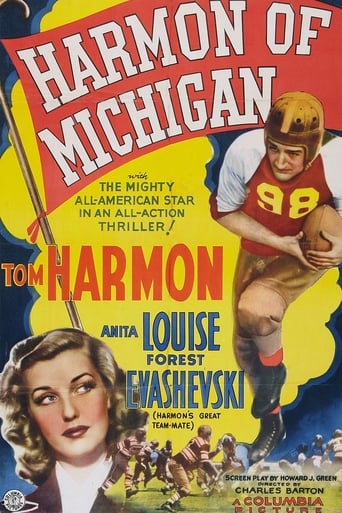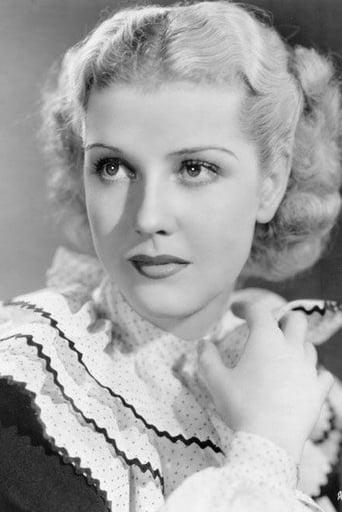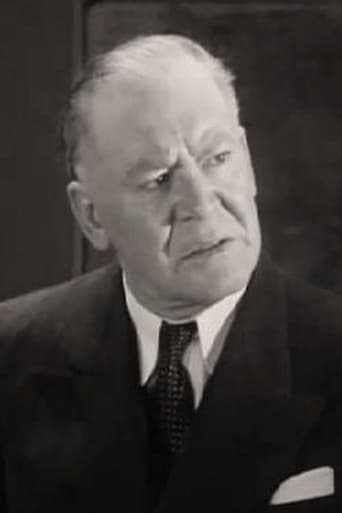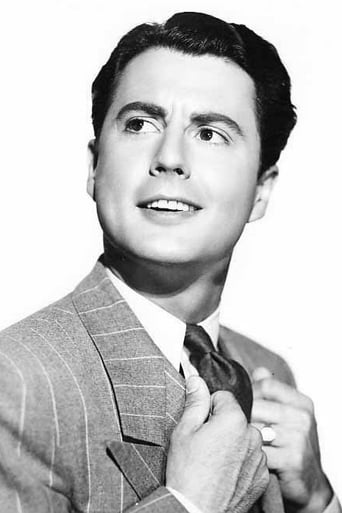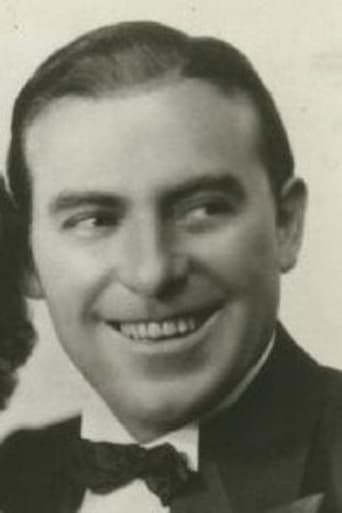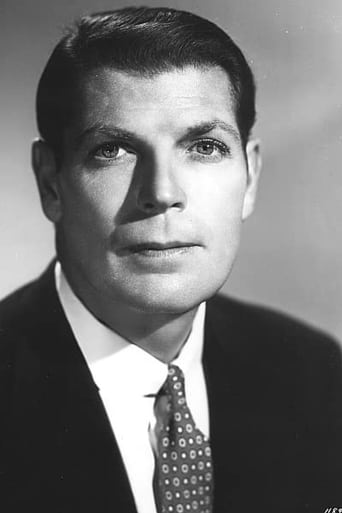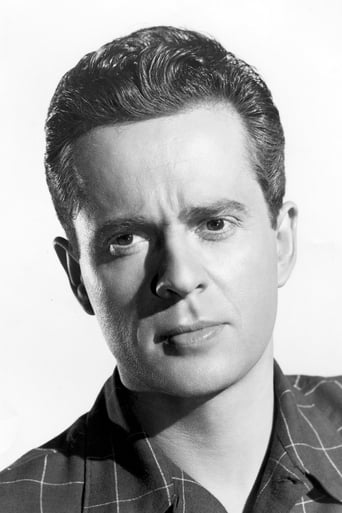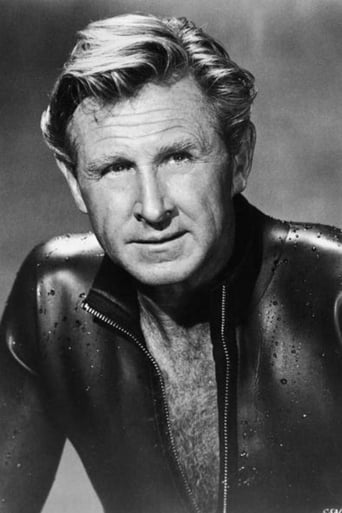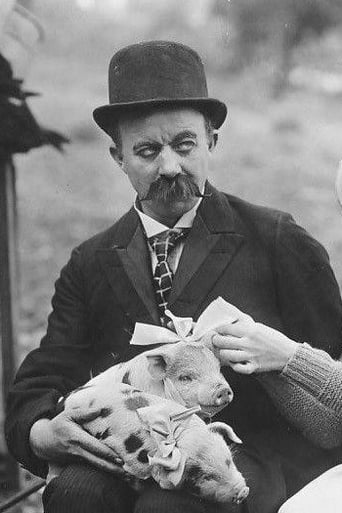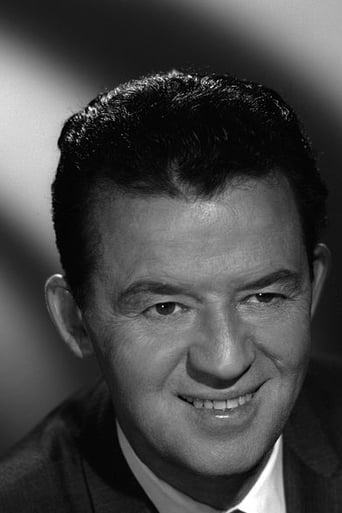A former University of Michigan football star (Tom Harmon) rejects an opportunity to play professional football. Instead, he marries his college sweetheart (Anita Louise) and begins a career as a college football coach.
Similar titles

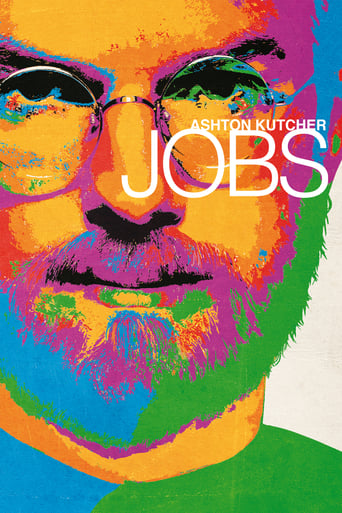
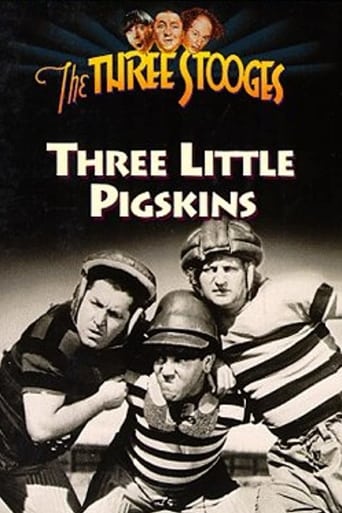

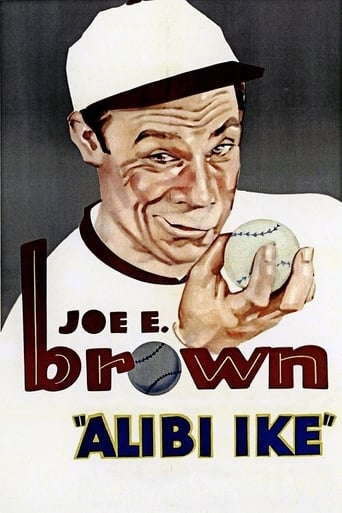

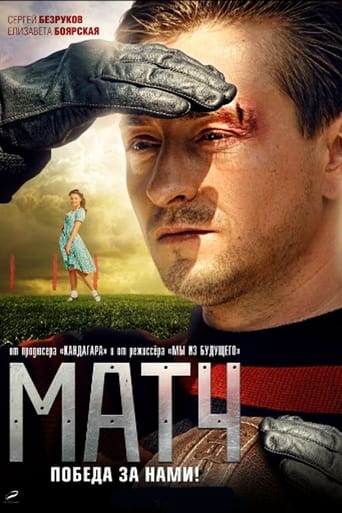

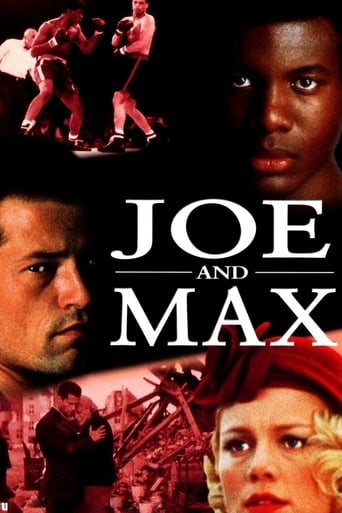
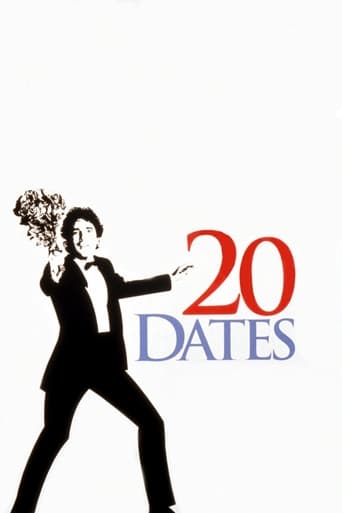
Reviews
good back-story, and good acting
This story has more twists and turns than a second-rate soap opera.
Let me be very fair here, this is not the best movie in my opinion. But, this movie is fun, it has purpose and is very enjoyable to watch.
Through painfully honest and emotional moments, the movie becomes irresistibly relatable
Although highly fictionalized, this film has a few interesting scenes that are surprisingly relevant to today's concerns over football injuries. Made in the summer of 1941, the movie creates a fictional wife (Peggy Adams) as Harmon's childhood sweetheart. Harmon didn't get married until 1944 when he married a film actress. They had three children, with son Mark achieving great success in several TV series, especially NCIS.When the film was made the attack on Pearl Harbor was still months away, so the "future" of Harmon in the film is entirely fictional. Apart from the introductory scenes of Harmon playing football for the University of Michigan, all of the colleges and pro teams in the film are fictional as are most of the people Harmon encounters. However, it's interesting to see Knox Manning, Sam Balter, Wendell Niles (noted radio and sports announcers), and others play themselves. Harmon's greatest success in real life would be as a sports announcer and newscaster.Of interest in the film is the scene in which Harmon and his (fictional) wife discuss their future. Peggy, like Harmon, is a college graduate and a skilled writer. She wants to pursue a career in journalism, but Harmon shuts this down by proclaiming that no wife of his will work-- interesting for 1941, but fascinating from the viewpoint of 2016.Another episode in the film deals with football injuries. Fictional Harmon devises a controversial and rather illegal play that results in serious injury to one of his players. Harmon himself suffers three broken ribs during one of his (fictional) games. What with the issue of concussions to quarterbacks, now highly publicized in the film "Concussion" starring Will Smith, this early film clearly showed that football could be hazardous to the health of its players.Finally, there is the (fictional) scene where honeymooners Tom and Peggy stop at a gas station and ask the attendant (film pioneer Chester Conklin) to fill up the tank. The cost: $1.60. Ah, the good old days!
The film started out well as the history of Tommy Harmon playing on the Michigan football field was shown with all its glory. It was at this time that the viewer believes that they are going to get a look inside the life of one of the best football players in American history. Instead we get a fantasy of make-believe stories that 'may-happen' somewhere down the line as nearly all this story, except his playing days at Michigan, is all fiction.From his one day coach stint, his coaching with his former mentor and his breaking of football rules, and his redemption- they are all part of things that never happened. I felt duped. I guess I could have reviewed the history of Harmon and notice that the movie was filmed just a year after his playing days, but the regular viewer does not always feel the need to do a background history before viewing a broadcast.The one thing that stands out in this film is the realism of plays on the football field. They were nicely put together and reflected the true formation at the time. This may have been a much better film had the movie been presented in a different manner and better actors were hired. Instead we are left with a film that took advantage of the situation and made a fiction out of a life that needed no embellishment.
Tom Harmon (ol' # 98 for the Michigan Wolverines, husband of actress Elyse Knox and father of Mark Harmon and Kelly Harmon)took a back seat to no one on the football field (except the Minnesota Gophers) or, later, in the broadcast booth, but, on film, he managed to find himself in two of the all-time bad sports movies..."The Spirit of West Point" and "Harmon of Michigan." The latter, if it had been a true-life biography of Tom Harmon, might have made a passable film but after a short prologue, narrated by sports writer Bill Henry who is not the same as actor William Henry, that semi-recaps Harmon's football-playing days at the University of Michigan, it quickly develops into a mess that indicates the director and writers used the technical adviser, Coach Jeff Cravath, only to put plays on the blackboard. Once Harmon,(supposedly playing himself but the character he plays here has more character flaws than the law allows), graduates from Michigan, he marries his college sweetheart Peggy Adams (Anita Louise), turns up his nose at the prospect of playing professional football---a poor-paying and not-that-well respected job in 1941---and starts a vagabond tour of coaching tank-water colleges. Authenicity went out the window when the narration ended, as did any kind of time tracking, as everything that follows seems to happen in a single football season. Tom takes an assistant coach job at a cow-pasture college under Jimmy Wayburn (William Hall) and lasts one day before Wayburn fires him. Then he signs to play for a College All-Star team doing exhibition games against pro teams, but his team-mates, hacked because Tom gets star billing, lay down on him and he gets smacked down hard on every play. One of the leaders willing to let Harmon get slaughtered is old Michigan teammate Forrest Evashevski (also not playing himself since this is a fictional film), a life-long friend in real life and Godfather to Mark Harmon and a long-time respected coach at the University of Iowa. Harmon wins the game by himself, but decides this isn't his cup of tea. He hangs around the house a few weeks, then gets a job as an assistant under old-time coach Pop Branch at a college that has three buildings on campus and a football stadium seating 100,000 fans. He helps Pop win a few games (still ticking along in what appears to be the same fall football season), but the alumni at Webster College are tired of losing, fire their coach and hire Harmon away from Pop. Harmon takes over the Webster team in mid-season and becomes the all-time example of a hard-ass coach willing to win at any cost, including installing a screen-pass play that depends on an illegal blocking scheme---the Flying Wedge---to make it work. His Webster team begins to thump their opponents by large scores, usually leaving the other team battered and bloodied by the use of the illegal blocking scheme. They win four or five games which, based on the writers time scheme, would have them playing 20 games a season in what was then a nine-and-ten game season. Plus, the press and other coaches around and about, are up in arms about Harmon's tactics, but the jerks refereeing the games evidently haven't read the rule book nor the newspapers and throw no penalty flags against his team. Well, one referee does once, but he never officiated nor had lunch in that town again. It, by any reasonable calendar must now be July of the next year in a season that should have ended in December, and hard-case Harmon's team is going up against Pop's team (where Harmon coached earlier in this never-ending season) and Pop drops by and tells Tom he ain't all that fond of Tom's coaching methods, but Tom poo-pahs him off, and then sends his team out and they gleefully dismantle Pop's fair-playing team by 109-0. But Webster's quarterback Freddie Davis (Stanley Brown) suffers a concussion running a play Harmon calls just to run up the score even higher---Harmon evidently didn't read the script because nobody using their own name would want this character perceived as Himself---and it's nip-and-tuck whether Freddie will get out of the hospital alive. It gets even stickier when Freddie parents drop their hospital vigil long enough to tell Tom they are right proud that he is Freddie's coach. Say what? Tom sees the light and reverts back to the good old boy he started out as. Written by Les Adams {[email protected]}
An old fashioned football movie, made on the eve of U.S. entry into World War II, in which Harmon would serve with distinction. It begins with footage of Harmon's games at Michigan, in which Harmon, "old number 98," starred as a triple threat, becoming the best known All-American of his day and featured in LIFE magazine. After a brief pro career, Harmon became a sportscaster and, married to actress Elyse Knox, father of Mark Harmon, a UCLA All-American and actor. Tom Harmon's team-mate Forest Evashevsky, another All-American and later a successful coach, also features in the film, while Anita Louise plays Harmon's wife. It's a simple story of an ambitious young coach who needs to learn a few lessons in life and sports from an old coach and a loving wife. It has some good staged football action, of the game as it was played in the late '30s and, of course, a happy ending.
Top Streaming Movies












